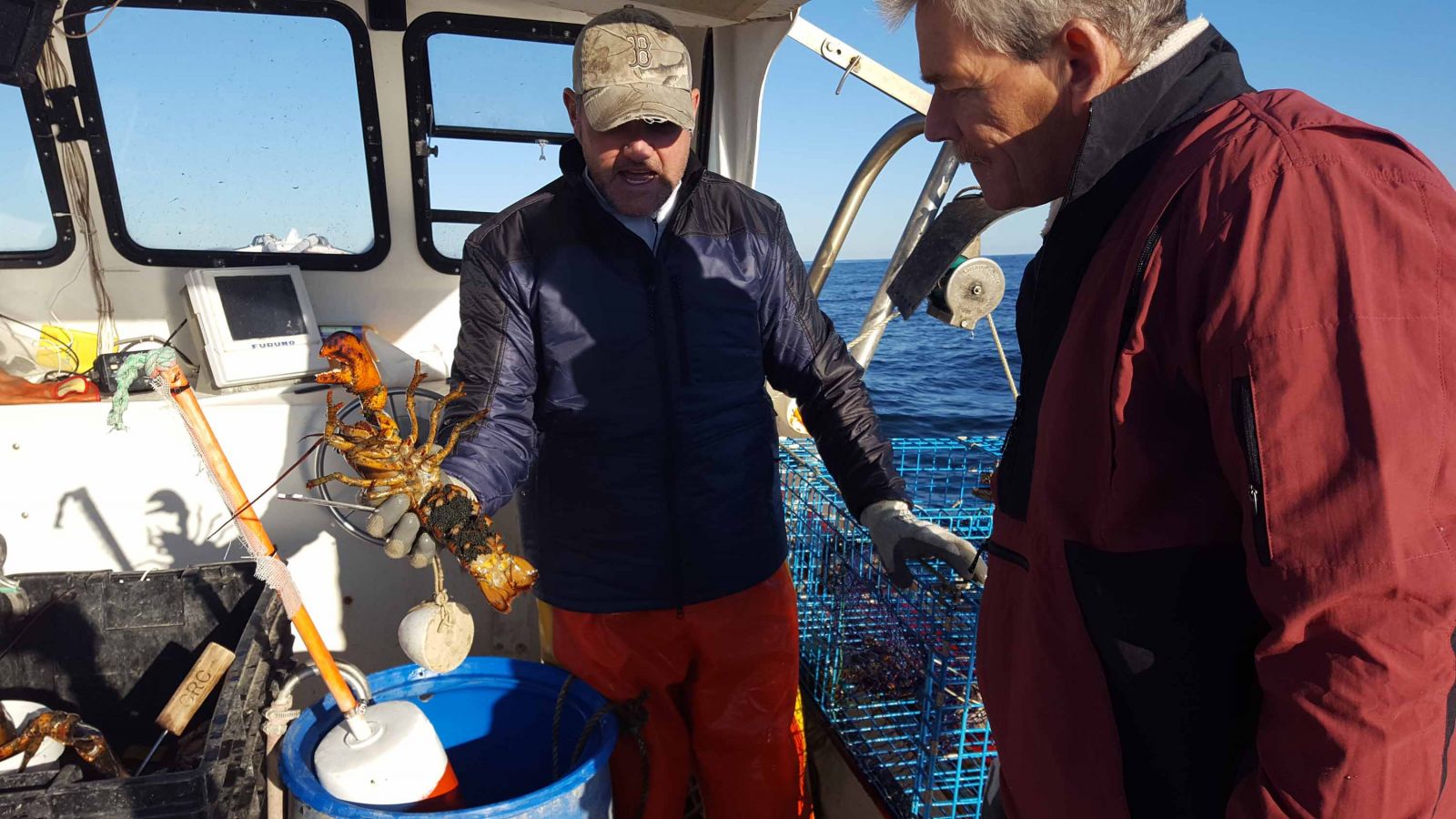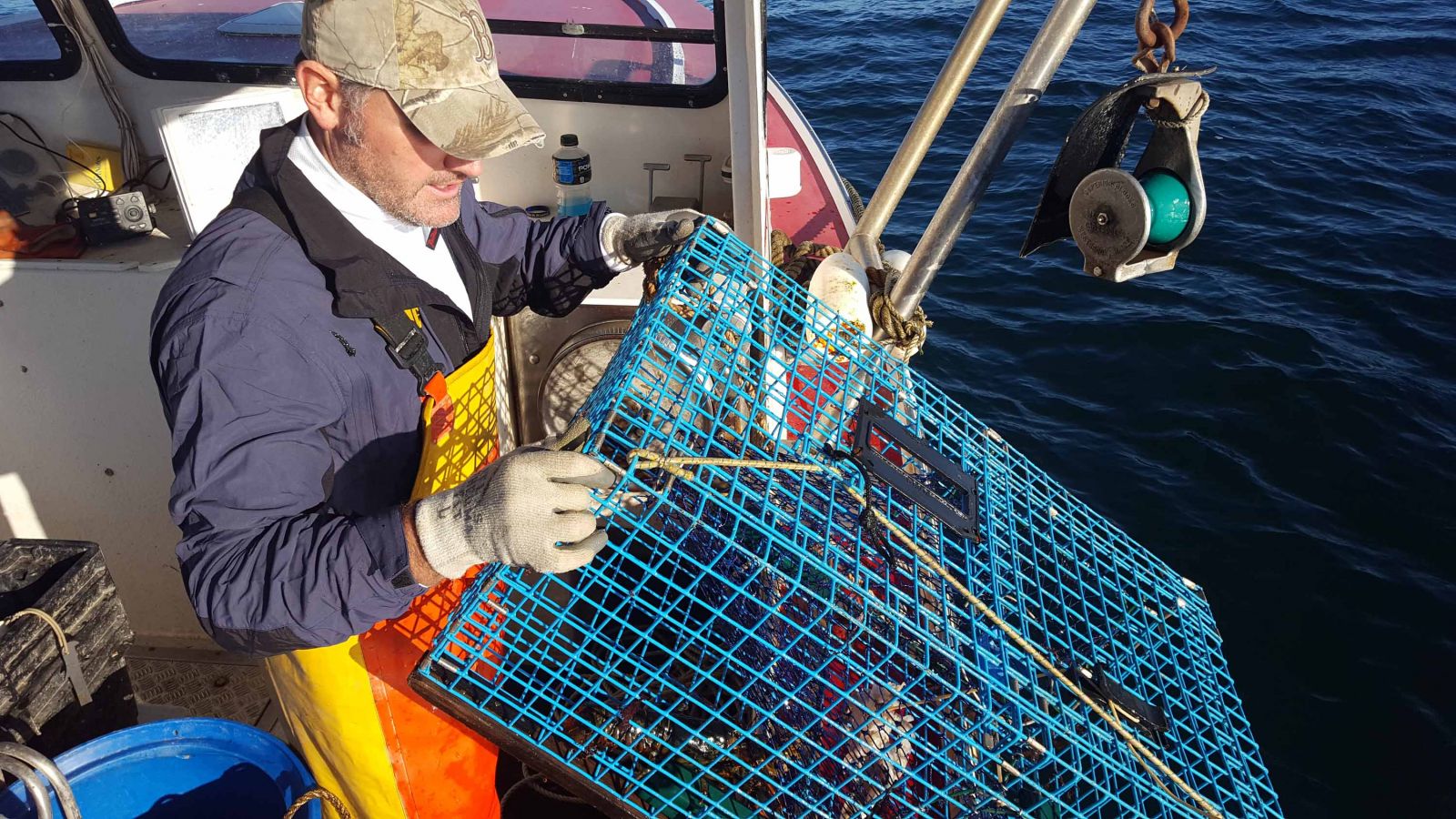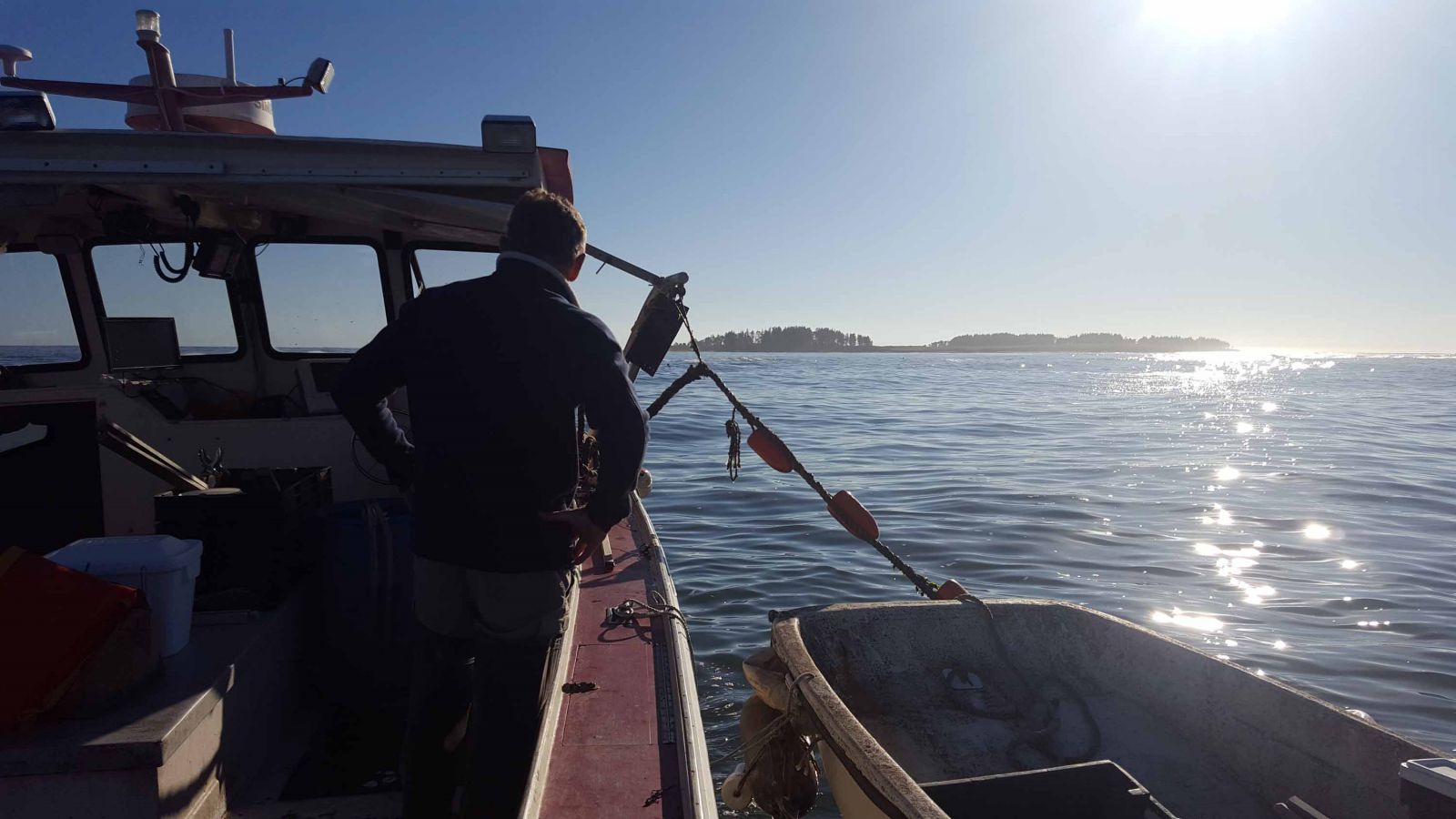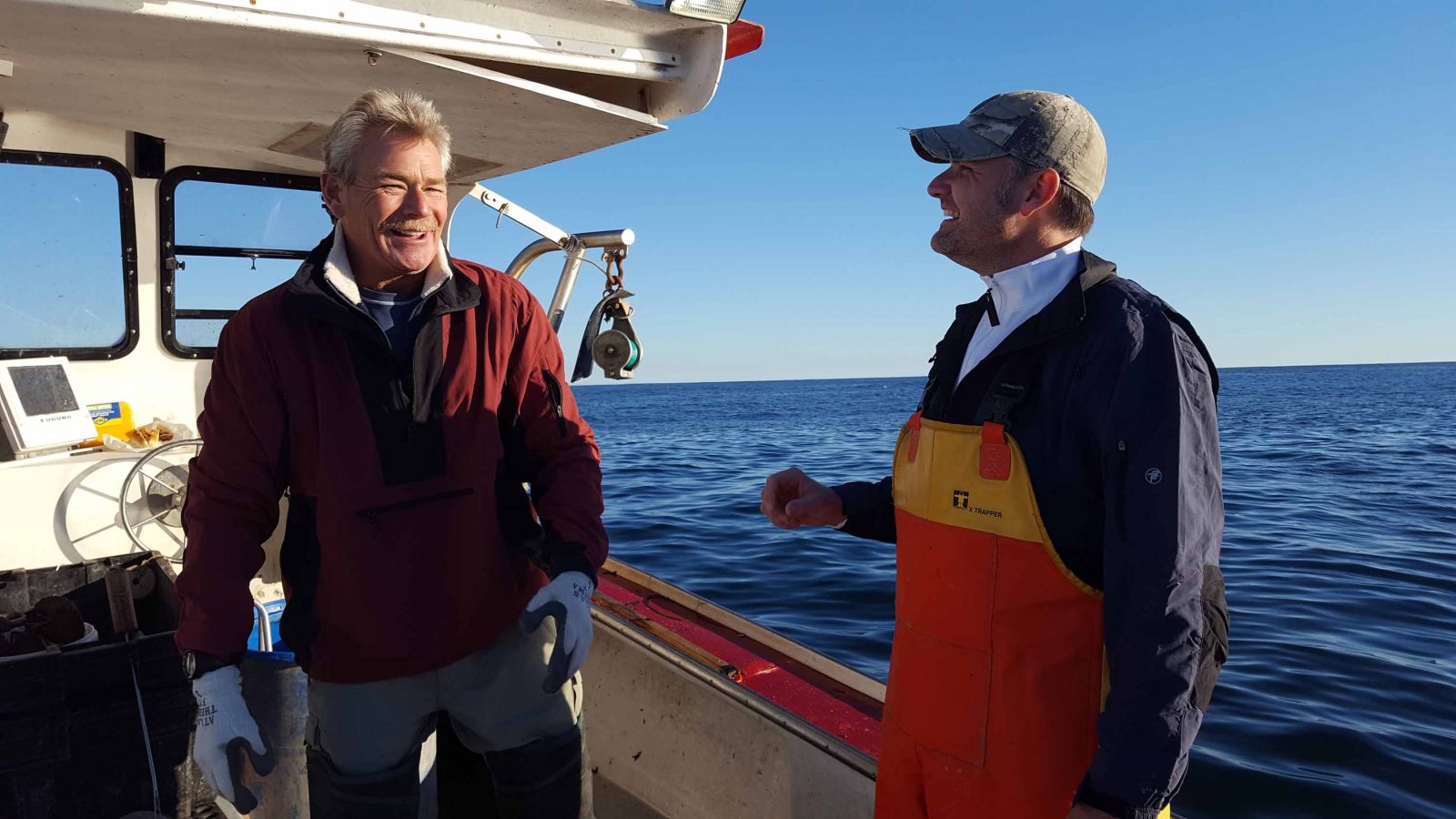Interviews & Profiles
Lobstering with Tucker Jordan and the Maine Lobster Boys
Jan 19, 2017
In the fall of 2019, RailRiders CEO and founder John d'Arbeloff (pictured, right) went up to the historic Maine coast to spend a day lobstering with Tucker Jordan (pictured with lobster) of the Maine Lobster Boys. After a day of hauling in the catch, Jordan sat down to give us some insight into his family's lengthy history on Cape Elizabeth and what the lobster industry is like today.

Can you tell us the story of your family, and how they came to Cape Elizabeth? When did they arrive?
In the early turn of the 1600s the Jordan family came across the Atlantic Ocean from England. They built a trading post on Richman Island, and then later settled on what is now Cape Elizabeth. My grandfather told me that my brother Lincoln and I, who are the Maine Lobster Boys, are 16th generation lobsterman and farmers. That is something I have held onto for a long time. And something I am very proud of. I'm not sure how far back that dates, being the 16th generation, but it's pretty far.
You have two family businesses: Jordan’s Farm and the Maine Lobster Boys. How did the farm start? Is there a connection between fishing and farming for you?
My grandfather started Alewives Brook Farm in the middle of the 1950s. My dad took the farming over from him as time went on. When my father took over, the farm was turned into a retail vegetable farm rather than wholesale and dad added the lobster tanks when he was in his 20s. When I graduated from college I took over the lobstering aspect and he could focus solely on farming. There is nothing more enjoyable in my memory then spending time with my grandfather as a young child and learning how to be a conservative yet profitable lobsterman and how to farm our family land. It brings me great joy as well every time I get to spend a day on the water lobstering with my dad. In today’s day and age, so many families have lost the aspect of being able to work with generations of family side-by-side.
Maine Lobster Boys is a separate entity to Alewives Brook Farm. We focus on shipping lobsters countrywide, and building holding tanks for people that want to sell lobsters retail. We have successfully built two tanks in Maine, one in St. Louis, Missouri and one in Austin, Texas.
The connection between farming and lobstering for me is that it's in my blood; it's a family business and I can't imagine doing anything else.

When did your family get started in the Lobster business? Did you start lobstering from your youth?
The lobster business has been going on for generations. My dad started his retail shop in his 20s at the farm, and my lobstering business was started when I was in college in 2003. Maine lobster Boys was born in a dorm room at Monroe Community College while I was playing collegiate hockey and getting a degree in fire administration, prevention, education and suppression.
What appeals to you about being a Lobster fisherman? What are the perks of the job? What is tough about it?
My favorite perks are having an office outside, being able to be on the water, being my own boss, and working as hard as I want to. The harder I work the more I profit, the more my family profits, and the more business grows. Being self driven is very important. The benefits and perks have a downside as well: being self-employed allows me to take time off when I want to go to family events or do things that most people wouldn't be able to do because of their work schedule, but with that there is also sacrifice. I do not get paid vacations and so when I take the time off I'm losing money. I left home to play junior hockey in 1999 in Cromwell Connecticut and I guess that is when I got the knack for selling lobsters on the road.

How has the lobster industry in Maine evolved over your lifetime?
The lobster industry over my lifetime has evolved with bigger, faster boats, better electronics, equipment to tell you where you are, what the bottom looks like, where you can go and how much later at night you can fish. We now have GPS chart plotters and whites to show you where the next and last buoys are. UPS and FedEx’s ability to deliver on time and overnight and handle with care has added another avenue to sell my catch for retail instead of wholesale boat price. The lobster industry also has evolved with the internet and international shipping, which helps with a better wholesale price. The demand from overseas is way up, especially in certain times of the year like the Chinese New Year, when it is typically slow going here in Maine for price and catch.
Are people more environmentally conscious now, or has that been a constant within the fishing community? If there has been a progression, was that out of necessity to maintain the industry?
There have been major advancements in law enforcement over the notches Eggars in undersize lobsters. Whereas before you always had a few bad apples that would rot the bushel and we were able to start to weed those out as time has gone on but you're always going to have those bad apples.
What are some of the modern challenges faced by the industry?
Right now the biggest challenge in the industry is over fishing; not overfishing that will do detriment to the lobster population, but in the sense that you can only cut the pie into many pieces for people to make money. I believe that there should be two ways to get a lobster license now: one, you start out as a young kid and work your way up through an apprenticeship program and get a license or, two, you buy somebody's Maine state license. If we keep issuing licenses, the people already in the industry are only the ones that are going to get hurt. So why wouldn't you have a set number of licenses available to work the industry with? That gives the older generation a way to make some money for retirement by selling their business.

Can you explain to us why Maine Lobster is just so much better than all the other lobsters around the world?
I believe Maine lobster is so much better based on the water conditions, depth and temperature in which they live, and also how they are handled. Our lobsters are handled like eggs from the time they come out of the traps to the time they get to our farm and are put into our tanks. It is scientifically proven that when lobsters are mishandled, thrown, dropped, or over-packed it provides immense amount of stress onto their systems. That's ruining the content of what's in their shell.
Now that you have used some of the Railriders Clothing, how do you think it would hold up in the lobstering world?
I found RailRiders clothing to be not only comfortable, but warm, effective, and very durable while reaching in and out of traps and working all day. It was very formfitting, easy to move and not confining or getting in the way. Well crafted.
